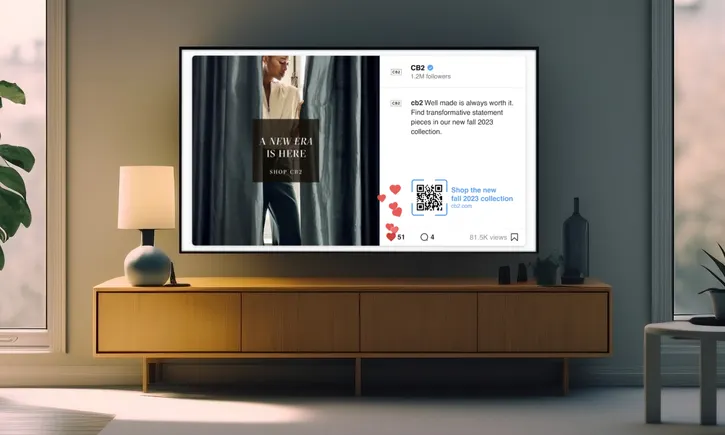- Digital Marketing Mix
- Posts
- Position #1 on Google Is Now Worthless? Shocking New Data
Position #1 on Google Is Now Worthless? Shocking New Data
The top spot isn’t what it used to be. Here’s how to win in the age of AI Overviews.

Disclosure: This content may contain few affiliate links, which means if you click on them, I will get a commission (without any extra cost to you).
Hey there,
Let’s talk about something we’ve all noticed—but now we’ve got the numbers to back it up.
📉 Google’s organic CTR (click-through rate) for the #1 spot has dropped 32% year-over-year.
That stat comes from a new GrowthSRC Media study analyzing over 200,000 keywords. And it confirms what many of us have suspected since the rollout of AI Overviews:
Being #1 on Google isn’t what it used to be.
What's really happening?
Google has changed.
AI Overviews are now taking up prime real estate at the top of the SERP. In some cases, they're pushing the first organic listing below the fold—sometimes under maps, People Also Ask, or shopping results.
So even if you “rank first,” your result might be the fifth thing users see.
Here’s what GrowthSRC found:
32% CTR decline for position #1
20%+ decline across positions 2–5
Branded queries performed better, but CTRs still declined in certain industries
Now, for some in the SEO world, this is alarming.
For others, it’s just the next chapter in a story that’s been unfolding since Featured Snippets and Zero-Click Searches first arrived.
But here’s the key takeaway:
🔑 You can’t win SEO in 2025 by focusing only on rankings. You need to win attention.
What’s changing with user behavior?
Users are adapting to AI Overviews—and some are skipping clicks altogether.
Instead of scanning 10 blue links, many users now:
Read the AI summary and stop there
Click the source in the overview (if cited)
Scroll past it entirely, looking for “real” content
Use follow-up queries if the AI didn’t answer fully
We’re not just optimizing for algorithms anymore. We’re optimizing for how humans engage with AI results.
How do you win clicks now?
Here’s the playbook I recommend—especially if your traffic has dropped post-AI Overviews:
1. Optimize for AI visibility, not just rankings
Focus on being cited inside AI Overviews.
That means:
Writing with clear topical focus
Using structured, scannable formats
Including definitions, how-tos, pros/cons, and data
Building E-E-A-T to prove you’re a trusted source
You want to be the answer—not just a result.
2. Own the conversation beyond the SERP
People now find content through:
TikTok searches
YouTube deep dives
Social media recommendations
Chat-based AI tools like ChatGPT or Perplexity
You need to show up across all of them.
Create content worth sharing. Distribute it like a media brand. Think omnichannel, not just organic.
3. Re-engage visitors through brand
If your site gets fewer first-time visits from Google, make the ones you do get count.
Capture email early
Deliver a killer lead magnet
Build a remarketing audience
Make your content so useful to the audience that they return without a search
Great brands don’t rely on Google. They use it as one of many entry points.
4. Write with voice and velocity
AI summaries strip out personality. They summarize the what—but not the why it matters.
Double down on:
Opinionated content
Personal experiences
Contrarian takes
Fresh insights, not summaries
That’s what gets clicks. And it's what builds loyalty.
My take on this shift
We’re not in a “death of SEO” moment. We’re in a redefinition of SEO.
It’s not just about getting ranked. It’s about:
Being the source that AI pulls from
Being the result users trust and want to click
Creating content ecosystems, not isolated blog posts
Ranking #1 used to mean traffic. Now it just means placement.
You still need traffic—but how you earn it is evolving fast.
Final thoughts
SEO isn’t dying. It’s just maturing.
The winners in this new environment are those who:
Prioritize clarity over keyword stuffing
Build true authority, not just link volume
Create content humans and machines understand
Adapt to how people search now—not how they searched last year.
And if you need help making your site AI-ready and future-proofing your SEO, let’s talk.
Keep optimizing,
Shane
Learn from this investor’s $100m mistake
In 2010, a Grammy-winning artist passed on investing $200K in an emerging real estate disruptor. That stake could be worth $100+ million today.
One year later, another real estate disruptor, Zillow, went public. This time, everyday investors had regrets, missing pre-IPO gains.
Now, a new real estate innovator, Pacaso – founded by a former Zillow exec – is disrupting a $1.3T market. And unlike the others, you can invest in Pacaso as a private company.
Pacaso’s co-ownership model has generated $1B+ in luxury home sales and service fees, earned $110M+ in gross profits to date, and received backing from the same VCs behind Uber, Venmo, and eBay. They even reserved the Nasdaq ticker PCSO.
Paid advertisement for Pacaso’s Regulation A offering. Read the offering circular at invest.pacaso.com. Reserving a ticker symbol is not a guarantee that the company will go public. Listing on the NASDAQ is subject to approvals.
Looking for more in-depth strategies and exclusive content?
Check out my Gumroad page for courses, guides, and tools that can help take your digital marketing to the next level. Whether you're looking to master SEO, influencer marketing, or content strategies, I've got resources to get you there. Plus, you'll find some free content to help you get started right away!
Visit my Gumroad page and explore everything I have to offer!
📰 In the News This Week
1. Found the insights helpful? Forward this email to help fellow business owners or marketers.
2. Spread the word. Encourage your friends or followers to sign up.
3. Have us test and review your marketing or business tool on ShaneBarker.com. We can write a product review, comparison, or industry listicle for you.
If you have any specific questions or topics you'd like us to cover in future newsletters, please feel free to reach out. We'd love to hear from you!
To your content marketing success,
Shane Barker




